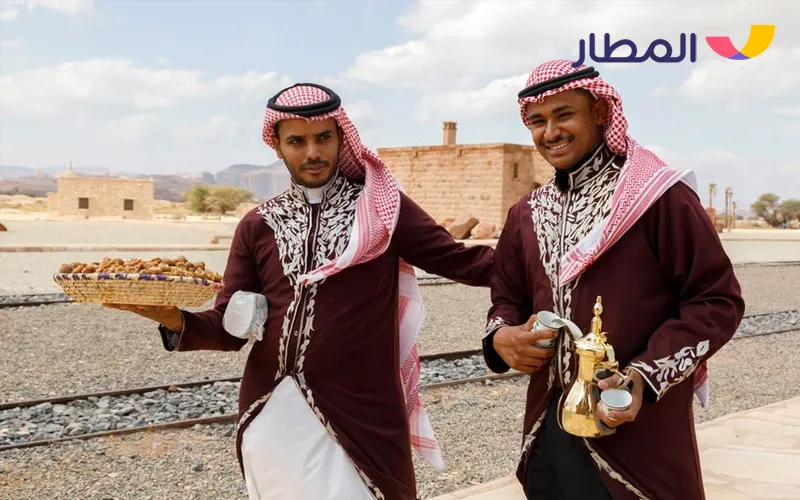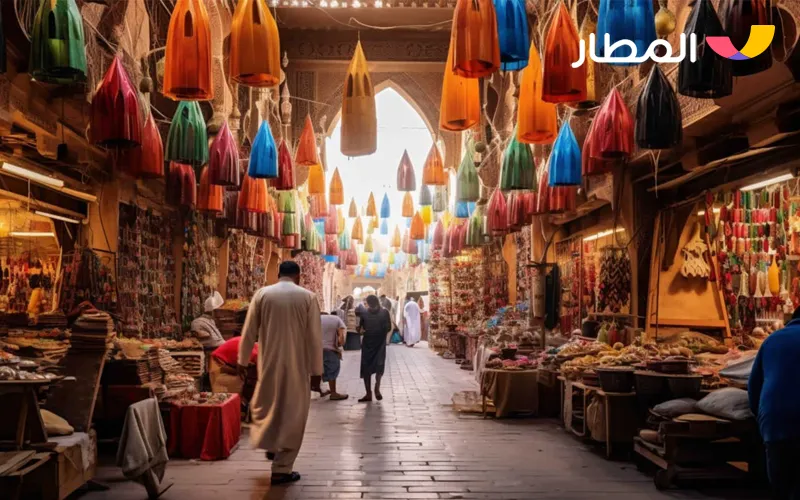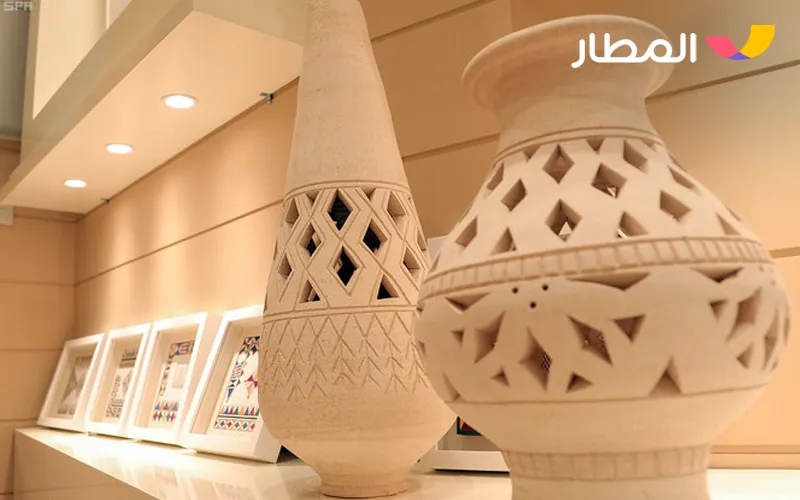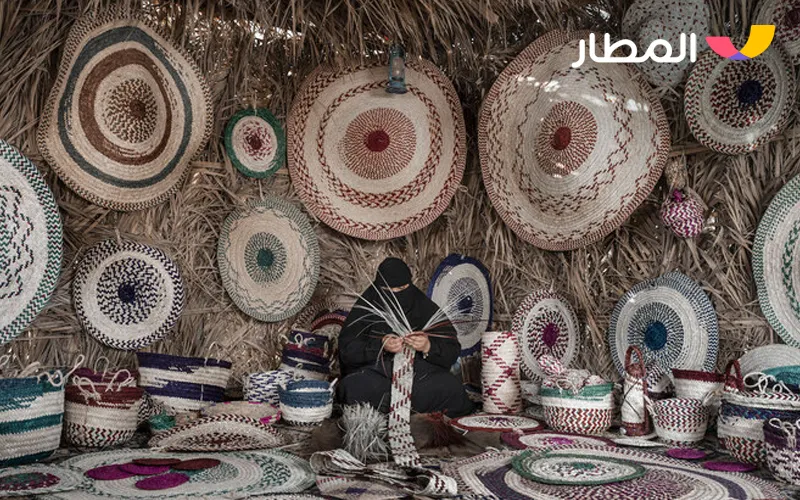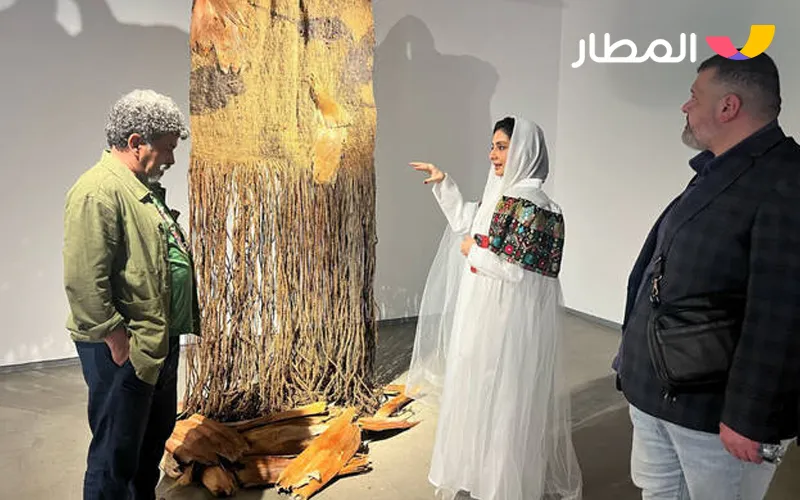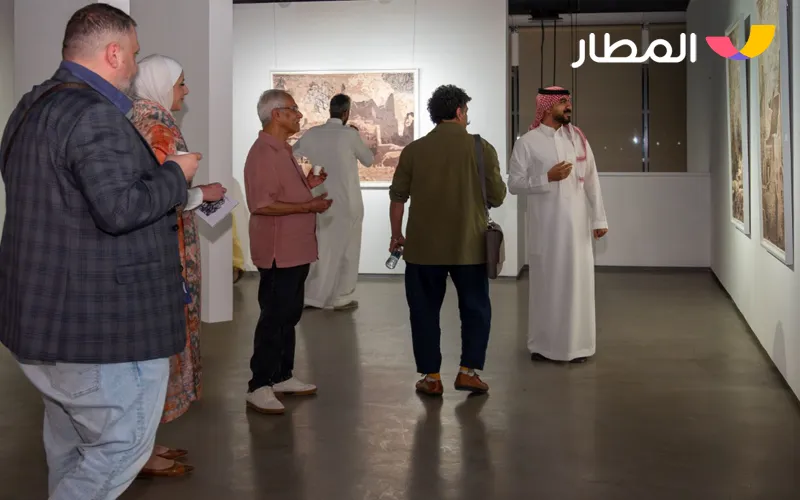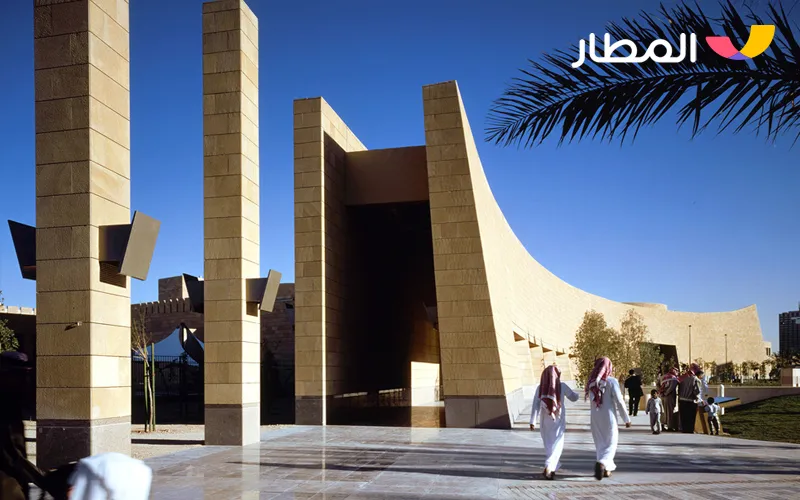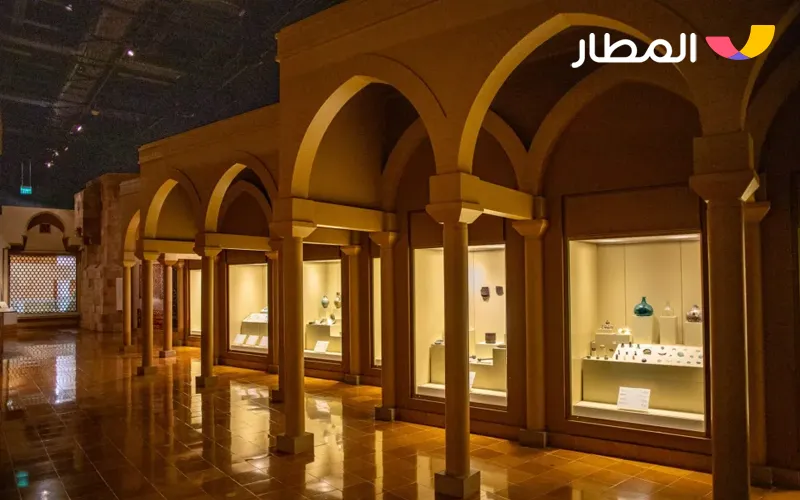Saudi Arabia carries a rich civilizational legacy that spans thousands of years. Every corner of this country tells a story, and every tradition reflects the identity of a people deeply rooted in their land. Any information on Saudi Arabia in the cultural and heritage dimensions reveals, in one aspect, a meeting point of civilizations and an authentic Arab history that has had a profound influence on the entire world.
Today, Saudi Arabia opens its doors to the world, sharing its rich civilization and culture with everyone. The country invites travelers to discover a unique blend of Arab authenticity and modernity that never strays from its heritage, offering interesting facts about Saudi Arabia that reveal its evolution and diversity.
With almatar Services, your comfort starts from your doorstep
Before you begin your journey anywhere in the world, ensure you have safe and easy access to the airport. almatar offers you a comfortable and secure transportation service that spares you the worry of traffic or congestion. Whether you are traveling alone or with your family, you will reach your destination with peace of mind, ready to start your trip calmly and confidently, and enjoy your experience from the moment you leave your home.
General information about Saudi Arabia: culture, heritage, and traditions
-
Cultural values: the foundation of the steadfast Saudi society
Saudi generosity: hospitality is not courtesy but a way of life
Generosity is one of the values that runs in the blood of the Saudi people and manifests in their behavior. It is not merely a social habit, but a life philosophy whose roots run deep into ancient Arab civilization. In Saudi culture, a guest is not a passing visitor but an honor that requires offering the very best. Serving Arabic coffee and dates, that symbolic pair, is not merely a ritual but a message of love and respect that you will find wherever you are welcomed in Saudi gatherings. The authentic Arab generosity is among the important facts about Saudi Arabia, and you will experience it firsthand, as it continues to this day in the behavior of its people.
Family ties: the heart of social life in Saudi Arabia
The family is considered the backbone of Saudi society, and this is not just a saying but a tangible reality in every social interaction. Strong family relationships, respect for elders, and maintaining kinship ties form the fabric of daily life. Grandparents hold a special place, and children grow up respecting the traditional values inherited from generations before them.
-
Cultural diversity: a symphony of colors and traditions
Saudi Arabia: a diverse canvas that dazzles wherever you go
Diversity in a country or society is not a flaw but a richness. From the green south to the sandy north, from the western coast to the oil-rich east, each region has its own cultural personality. Dialects differ, folk activities vary, and traditional foods carry flavors that reflect the heritage of each area. UNESCO has recognized this diversity by listing numerous Saudi elements on the World Heritage List, an interesting fact about Saudi Arabia that highlights its global cultural significance.
-
Saudi handicrafts: art that tells history
Al-Sadu: the honor of ancient weaving
At the heart of the Kingdom’s growing interest in traditional crafts, the art of Al-Sadu stands out as one of the oldest symbols of Saudi heritage. This art, inscribed by UNESCO on the Intangible Cultural Heritage list in 2020, is not merely a form of fabric weaving, but a visual narrative of a living Bedouin memory.
Each thread in an Al-Sadu piece tells a story about the desert and the Bedouin life, harsh and beautiful at once. Saudi women, who have preserved this art for generations, transform camel hair and sheep’s wool into masterpieces that adorn homes and keep history alive, radiant in every color, line, and pattern.
Other handicrafts: a living heritage and a renewed economy
Pottery and ceramics in Jazan, basket weaving from palm fronds, wood engraving, traditional cloak making, and gold ornaments with unique geometric designs each tell a story of human creativity passed down through generations. Facts about Saudi Arabia would be incomplete without acknowledging that these crafts are not just remnants of the past; they are also a testament to the country’s rich cultural heritage. Still, a thriving economy is witnessing steady growth, which strengthens the Kingdom’s position as a center of traditional crafts and arts in the region.
-
Traditional cuisine: a journey through Saudi flavors
In Saudi Arabia, food is not merely a meal but a language that expresses culture and generosity. From Kabsa with its aromatic rice and tender meats, to Haneeth, slowly cooked under the hot sand, and Masoub served with honey or date molasses, the dishes vary to tell stories of hospitality deeply rooted in every home.
As for dates, they reign supreme on Saudi tables not just as food but as a symbol of a long history of generosity and human kindness. In every region of the Kingdom, you will discover unique flavors that express the spirit of the place and its people, a culinary fact about Saudi Arabia that reflects its diversity.
-
Arts and literature: the voice of the Saudi soul
Poetry: the language of the heart
Arabic poetry holds a special place in Saudi culture. The poet was not merely a writer but the guardian of history, values, and wisdom. From pre-Islamic poetry to contemporary verse, Saudi poets have carried the torch of noble words, expressing the emotions of the people and the nation.
Folk arts
In Najd, swords dance to the rhythm of Al-Ardah; in Hijaz, the melodies of Mizmar and Sihba resonate; and in the south, the colorful Southern Step moves gracefully. Every folk art tells the story of a region, a history of pride, joy, and an ever-renewing identity.
-
Museums and living landmarks
From Al-Masmak Palace in Riyadh, which witnessed the unification of the Kingdom, to the historic district of Jeddah that preserves the memory of the sea and trade, reaching Jabal Ikmah in Al-Ula, an open library engraving the stories of civilizations on its rocks, each of these landmarks is not just an archaeological site but a stone book narrating chapters that changed the course of history.
When you visit these places, you feel as if you are walking through the pages of the past, gaining the wisdom of accumulated eras, one of the most important facts about Saudi Arabia and its rich legacy.
Mix Fly from almatar: freedom to choose your trip as you wish
Before booking your journey, remember the Mix Fly feature that gives you complete flexibility to select your departure and return flights from different airlines.
Select the dates that suit your schedule, save time and cost, and enjoy a smoother and more comfortable travel experience.
With Mix Fly, you control every detail of your trip, from start to finish.
Conclusion: memories that last forever
Saudi Arabia is a vast country that will amaze you with its cultural diversity. It also encompasses a collection of traditions that carry the fragrance of ancient times, foremost among them generosity, a timeless Arab trait that has been evident throughout history.
Visit Saudi Arabia, the land of goodness and giving, and keep with you warm memories you will never forget about this beautiful country.
FAQs about Saudi heritage and traditions
What is the best time to visit Saudi Arabia to explore its cultural heritage?
From October to April, when the weather is ideal for exploring museums, historical landmarks, and heritage events in a comfortable atmosphere.
Can I buy Saudi handicrafts during my trip?
Yes, traditional markets and exhibitions such as Historic Jeddah, Al-Ahsa, and Al-Ula offer authentic products of Al-Sadu, pottery, and palm-weaved crafts, and your purchase directly supports local artisans.
What are the most famous folk arts in Saudi Arabia?
Al-Ardah in Najd, Mizmar, and the Southern Step are among the most prominent folk arts, each region having its own unique style that reflects its history and identity.
Are Saudi museums suitable for all ages?
Certainly, most museums provide interactive exhibits and programs designed for children to make the experience enjoyable for the whole family.
How do dishes differ between Saudi regions?
Each region has its own flavors; the south is famous for Aseeda and Daghabees, the east for Jareesh, and the central area for Kabsa and Haneeth.
Is heritage tourism in Saudi Arabia suitable for families?
Yes, many festivals and events include family programs and interactive activities for children alongside rich cultural content, offering one of the most rewarding facts about Saudi Arabia for travelers seeking authentic experiences.



